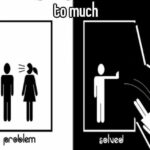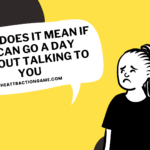Are you constantly feeling belittled or criticized by your partner? Do you often question your self-worth because of your boyfriend’s actions or words? If yes, then you’re certainly not alone. Many women, unfortunately, face this emotional turmoil. This article is here to help you navigate through the labyrinth of such a relationship. Discover “My Boyfriend Makes Me Feel Bad About Myself – 21 Advice For You”. We’ll delve deep into understanding the root causes of this issue, provide effective tips to deal with it, and empower you to reclaim your self-esteem. Read on to give your confidence a much-needed boost.
“Understanding the Signs: How Your Boyfriend Might Be Making You Feel Bad About Yourself”

Recognizing the signs is the first step towards understanding how your boyfriend may be making you feel bad about yourself. These signs can manifest in various ways, such as constant criticism, emotional manipulation, or belittling your achievements. If you’re frequently left feeling unworthy, insecure, or guilty after interactions with your partner, it’s possible you’re in a relationship that’s detrimental to your self-esteem. Remember, it’s crucial to maintain a healthy, respectful relationship where both parties feel valued and loved. Search engine optimized terms like ‘toxic relationship signs,’ ’emotional abuse,’ and ‘healthy relationships’ can provide further insight.
“Personal Empowerment: Overcoming Negative Feelings in a Relationship”
Personal empowerment is paramount in overcoming negative feelings in a relationship. It involves understanding your self-worth, embracing your abilities, and asserting your independence. If your boyfriend consistently makes you feel bad about yourself, it might be time to harness your personal power. This means setting healthy boundaries, standing up for yourself, and recognizing you deserve respect and kindness. Remember, empowerment starts with self-love. If you’re constantly belittled or made to feel inferior, it’s crucial to re-evaluate the relationship. Strengthening your sense of self-empowerment can help you navigate through these challenging situations and foster healthier relationships.
“Confronting the Issue: How to Communicate Your Feelings to Your Boyfriend”

When it comes to confronting the issue, it’s crucial to effectively communicate your feelings to your boyfriend. Emphasize on clear, open, and honest communication. Use ‘I’ statements, such as ‘I feel’ rather than ‘you make me feel,’ to avoid sounding accusatory. This approach is more positive and less likely to put him on the defensive. Remember, your feelings are valid, and it’s essential to express them. Also, choose the right time and place to discuss your feelings, when both of you are calm and ready to listen. This can significantly improve the outcome of the conversation.
“Gaining Strength: Practical Steps to Boost Your Self-esteem in a Relationship”
Gaining strength in a relationship involves enhancing your self-esteem. Begin by acknowledging your worth; remember that you are unique, capable, and deserving of love. Practice self-love, invest in your growth, and embrace your flaws – they make you who you are. Set boundaries in your relationship to prevent disrespect or manipulation. Encourage open communication with your partner about your feelings. Finally, participate in activities that uplift your spirit and confidence. This may include physical exercise, meditation, or pursuing a hobby. Remember, a strong relationship begins with a strong self.
“Moving Forward: When and How to Consider Ending a Toxic Relationship”.

In this journey of self-love and happiness, it’s essential to recognize when it’s time to sever ties with a toxic relationship. A toxic relationship can be identified when your partner consistently makes you feel bad about yourself, disrespects you, or undermines your self-worth. Understanding when and how to end such relationships can be challenging, but it’s crucial for your emotional health. This process may involve seeking professional help, setting firm boundaries, or even completely cutting off contact. Ultimately, it’s about preserving your well-being and prioritizing self-respect. This article aims to guide you through this difficult decision, providing supportive advice on when and how to walk away from a relationship that no longer serves your best interests.




